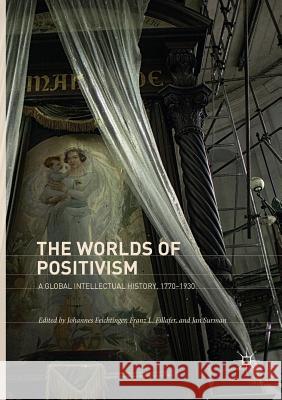The Worlds of Positivism: A Global Intellectual History, 1770-1930 » książka
topmenu
The Worlds of Positivism: A Global Intellectual History, 1770-1930
ISBN-13: 9783319880990 / Angielski / Miękka / 2019 / 367 str.
Kategorie BISAC:
Wydawca:
Palgrave MacMillan
Język:
Angielski
ISBN-13:
9783319880990
Rok wydania:
2019
Wydanie:
Softcover Repri
Ilość stron:
367
Waga:
0.46 kg
Wymiary:
21.01 x 14.81 x 2.03
Oprawa:
Miękka
Wolumenów:
01
Dodatkowe informacje:
Wydanie ilustrowane











